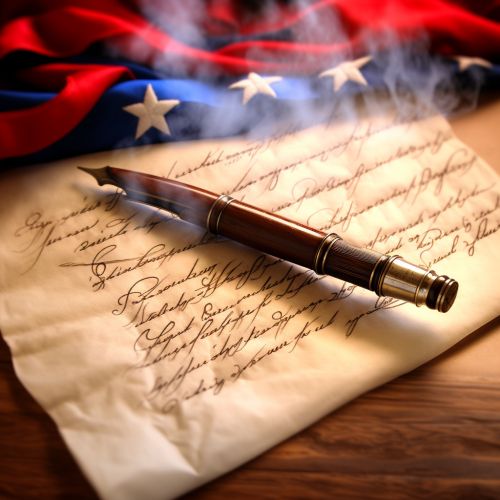United States Bill of Rights
Origins and Proposal
The United States Bill of Rights is the first ten amendments to the U.S. Constitution. Proposed by Congress in 1789, these amendments were ratified by the states on December 15, 1791. The Bill of Rights was born out of a desire to protect the liberties won in the American Revolutionary War and to guard against a central government that might infringe on these rights.
Text and Analysis
The Bill of Rights consists of ten amendments that outline the basic freedoms and rights of individuals. These include the freedoms of speech, religion, and the press, the right to bear arms, the right to a fair trial, and protection against unreasonable searches and seizures.
First Amendment
The First Amendment prohibits the federal government from making any law respecting an establishment of religion, prohibiting the free exercise of religion, or abridging the freedom of speech, the freedom of the press, the right to peaceably assemble, or to petition for a governmental redress of grievances.
Second Amendment
The Second Amendment protects the right of the people to keep and bear Arms. This amendment has been the subject of much debate, particularly in relation to gun control laws.
Third Amendment
The Third Amendment places restrictions on the quartering of soldiers in private homes without the owner's consent, prohibiting it during peacetime.
Fourth Amendment
The Fourth Amendment provides protection against unreasonable searches and seizures and requires any warrant to be judicially sanctioned and supported by probable cause.
Fifth Amendment
The Fifth Amendment sets out rules for indictment by grand jury and eminent domain, protects the right to due process, and prohibits self-incrimination and double jeopardy.
Sixth Amendment
The Sixth Amendment protects the right to a fair and speedy public trial by jury, including the rights to be informed of the accusations, to confront the accuser, to obtain witnesses and to retain counsel.
Seventh Amendment
The Seventh Amendment provides for the right to trial by jury in certain civil cases, according to common law.
Eighth Amendment
The Eighth Amendment prohibits excessive fines and excessive bail, as well as cruel and unusual punishment.
Ninth Amendment
The Ninth Amendment states that the enumeration in the Constitution, of certain rights, shall not be construed to deny or disparage others retained by the people.
Tenth Amendment
The Tenth Amendment reinforces the principle of federalism by stating that the federal government possesses only those powers delegated to it by the states or the people through the Constitution.


Impact and Legacy
The Bill of Rights has had a significant impact on the American legal system and society. It has served as a cornerstone for the protection of individual liberties and has been used as a benchmark for human rights around the world. The principles outlined in the Bill of Rights have been interpreted and applied in countless court cases, shaping the understanding and application of the Constitution.
